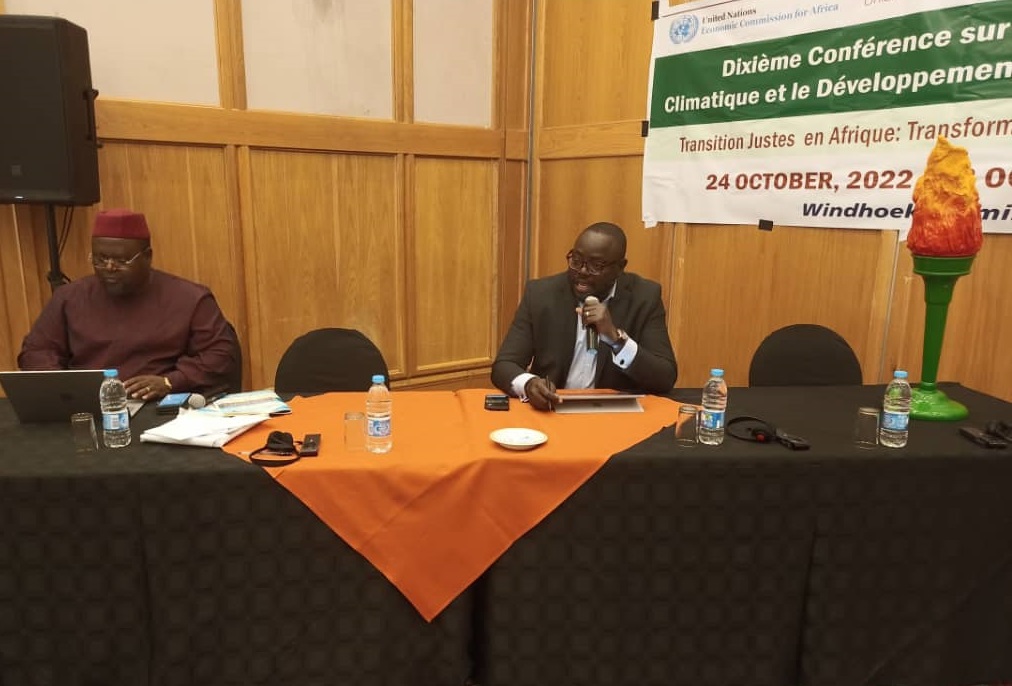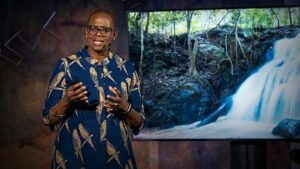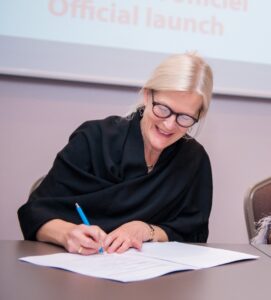
Experts on just energy transition have interrogated the role the private sector can and must play to accelerate a just transition to low-emission development and industrialisation in Africa.
This was done in an event on the sidelines of the Tenth Conference on Climate Change and Development in Africa (CCDA-X) organised by the Pan Africa Climate Justice Alliance (PACJA), African Coalition for Sustainable Energy and Access (ACSEA) and World Wide Fund for Nature (WWF).
The event highlighted the safeguard needed to ensure that such private sector roles generate benefits for marginal communities and brought together leaders from government, civil society, academia, and the private sector for a candid conversation.
In his remark, Eugene Nforngwa the Director of Programmes at ACSEA said: “Most of the renewable energy movements are led by the private sector. It is quite unfortunate that the same actors involved in fossil fuels are rebranding themselves as transiting to clean energy. This implies that we might have the same systems and outcomes in energy in the coming years if business as usual.”
“We need an increase in energy access for marginalized communities to be led by private sectors. We are looking at the political issues, community drives and debates with the just transition lens and hope to develop a blueprint of what civil societies advocacy should look like going to COP 27,” he added.
Augustine Njamnshi, Chair of Political and Technical Affairs Committee at ACSEA, outlined how just transition started in the United States within the labour force of fossil fuel workers worried at losing their jobs.
“In Africa, over 600 million people do not have access to Energy whether clean or dirty. Therefore, we need to have our own path to just transition as to what we are transitioning from and our priority areas. Energy was brought to Africa as a commodity not a service. People that have money go for it and those that cannot afford it are being left out,” he said.

Wanjira Mathai, Vice President of the World Resources Institute (WRI) added that:
“In Africa, it is not even a transition because we are experiencing a high rate of energy poverty. We are in dire need of building our economy and massive development. And no Country can develop without energy. Hence, we prioritize the expansion of clean energy but this cannot suspend Africa development as we constitute barely 2 percent of the renewable energy sector globally. Furthermore, it should not be a hard task for Africa to demand for more incorporation of renewables in comparison to high income economies.”
Eugene mentioned that the decision of how much energy to be produced, where and at what cost were still in a handful of persons. He called for more inclusivity and expansion of the energy governance in Africa saying that there should be more open space for more participation.
Mohammed Omran Barakat, North African Representative at African Renewable Energy Initiative (AREI) said Africa need to improve policy measures and more strategies on how to attract funding for renewable energy in Africa.
“The roles of different stakeholders are very important for just energy transition in Africa. We need a better regulatory framework and government subsidies largely enough to commensurate energy supply in the sector. Procurement rules are also key and we must ensure that private sectors are ready to expand and own energy production,” he said.
Omran mentioned that there are 54 initiatives of Energy in Africa. “We need more collaboration, enhanced coordination among the Africa leading initiative to attract political attention, encourage technology transfer and South-South cooperation,” he added.
Elizabeth Wangeci Chege from the Sustainable Energy For All (SE4All) said:
“We bear in mind that different private sectors exhibit various focus broadly on commercial and private home use. As a continent, Africa must work on manufacturing and distributing renewable energy in the context of just transition. We also have established grid systems we need to consider when expanding.”
Elizabeth announced that SE4All was launching an initiative called Africa Just and Affordable Energy Transition Initiative (AJAETI) at COP 27.
“AJAETI presents an opportunity for clean energy objectives to be highlighted. It will be launched at the Energy thematic day through the COP energy presidency and SE4All amongst others,” she added.
“Overall, private Sectors cannot be singled out to do all of the work. Just energy transition has to be a collaborative effort involoving various governments, civil societies and the public,” concluded Elizabeth.
Thomas Opande from the World Wide Fund for Nature (WWF) spoke on the key barriers to private sector participation in the energy transition process in Africa.
“One of the key barriers is finance. The risk of investment in Africa is termed high and constrains external investors. Another barrier is that Africa energy policies are slow generally speaking. They also lack ambition, for example in energy access: for 50 years Africa has gained independence but we still hold a record of 15% energy access across the continent,” he said.
Joab Okanda, Pan Africa Senior Advocacy Advisor at Christian Aid, said that the biggest barrier to private sector role to just transition was the lucrativeness of the present fossil fuel industry.
Eskedar Awgichew Ergete, Executive Director of Eco-justice Ethiopia, drew attention to the fact that Africans do not consider indigenous solutions as first place. He mentioned that Ethiopia has huge potential for hydro-energy but has not received enough attention.

Ulla Andren, Head of Regional Development Cooperation in Africa at the Embassy of Sweden in Addis Ababa said that a decentralised approach in the regulatory framework should incorporate both investment in the grid established and development of new grid systems.
Godwin Ojo from Friends of the Earth Nigeria (FoEN) highlighted that just transition within the private sector must be people-centred
“We must also clearly understand energy production and supply across the continent, and push for divestment: to remove all funds and subsidies in coal, oil and gas and reinvest such in renewable energy,” he said.
Santiago Goicoechea, from the United Nations at Mozambique, made a call for stakeholders to think about energy from a human development perspective. “We should be considering the easiest and fastest way to expand energy access which would be expansion of the solar grid. A Transition that has energy access as the number one priority should be our focus: fastest to access and low requirements to invest,” he said.
Joseph Mukabana, Senior Scientific Officer for WMO Regional Office for Africa at Addis Ababa, said that he agreed with issues of energy access, energy governance and industrialisation motor in Africa.
“Looking at the strategy for Africa to talk as one voice on Energy transition at COP 27 in Sharm El Sheik in Egypt, Africa needs more time to transition. There is a need for Africa to look at its own transition (not one size fits own at COPs recommendation) to adopt renewable energy transition (solar/wind/hydropower) – but also continue to use the fossil fuels that are available and untapped. In Copenhagen COP, China pleaded that they will still be using fossil fuel to transform poverty for 100m people in the northwest part of their country but were following the Renewable Energy Initiative. Africa can do the same.”
Elizabeth Wangeci Chege further highlighted that Africa has lots of renewable energy opportunities that have not been looked at.
Mohamed Omran also added that finance from the public and private sector is key to pushing for just transition.
“Renewable energy provides opportunities for sustainable energy access in a more environmentally friendly manner. The Energy Crisis needs to be tackled by multi-stakeholders such as governments, private sector and CSOs,” he said.
In his closing remarks, Dr Alfredo Hungari, AREI Technical Committee and Representative of the President of Namibia, appreciated the organisers of the event and thanked everyone for attending.
“Africa is home to 60 per cent of solar resources and 13 per cent of gas resources. AREI is working hard to ensure that the transition of energy in Africa is just from the industrial level to the impact of climate change. We are making it more robust and tangible for the ordinary person in the community,” said Dr Alfredo.











